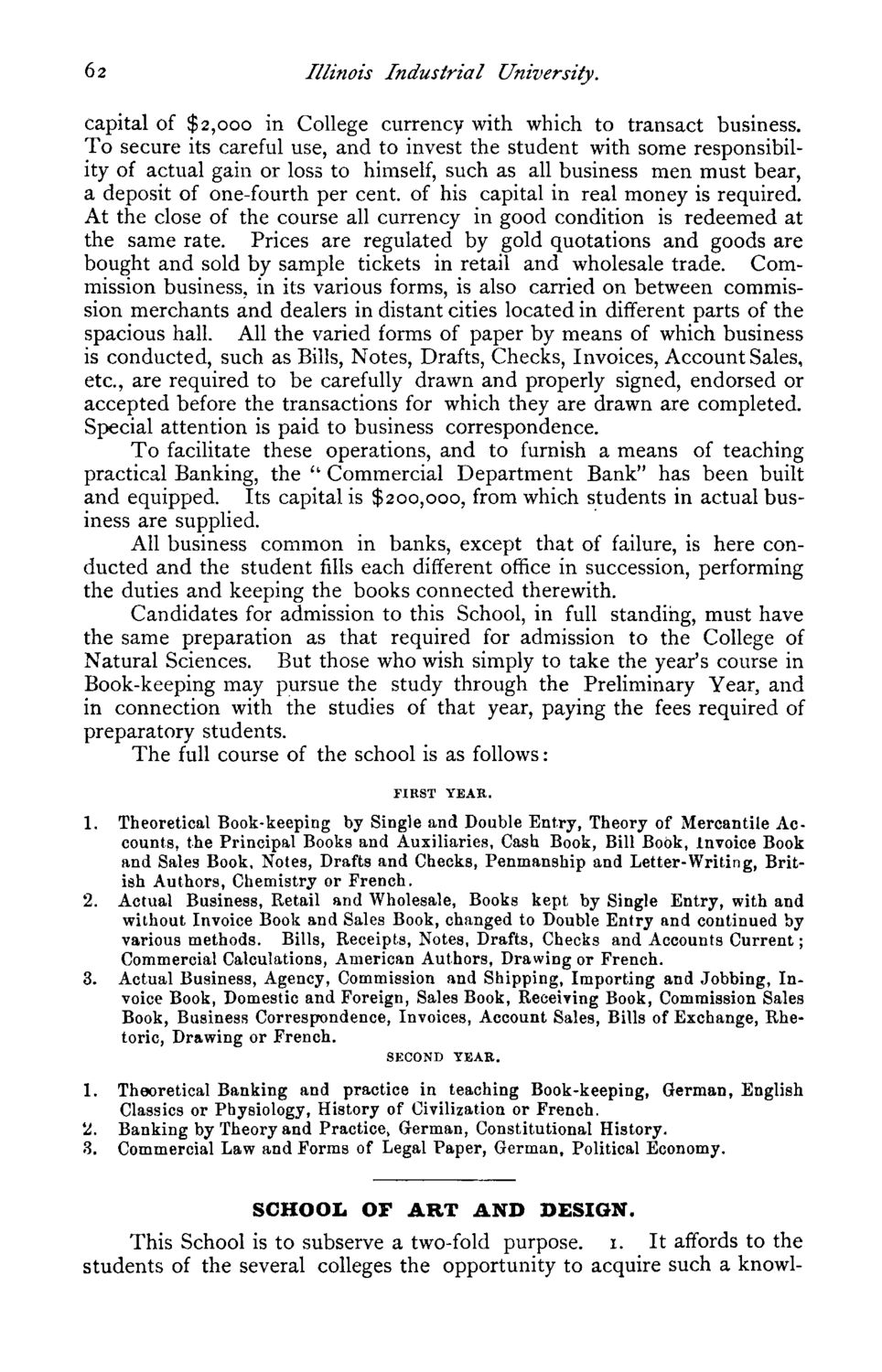| |
| |
Caption: Course Catalog - 1877-1878 Version A
This is a reduced-resolution page image for fast online browsing.

EXTRACTED TEXT FROM PAGE:
62 Illinois Industrial University. capital of $2,000 in College currency with which to transact business. To secure its careful use, and to invest the student with some responsibility of actual gain or loss to himself, such as all business men must bear, a deposit of one-fourth per cent, of his capital in real money is required. At the close of the course all currency in good condition is redeemed at the same rate. Prices are regulated by gold quotations and goods are bought and sold by sample tickets in retail and wholesale trade. Commission business, in its various forms, is also carried on between commission merchants and dealers in distant cities located in different parts of the spacious hall. All the varied forms of paper by means of which business is conducted, such as Bills, Notes, Drafts, Checks, Invoices, Account Sales, etc., are required to be carefully drawn and properly signed, endorsed or accepted before the transactions for which they are drawn are completed. Special attention is paid to business correspondence. To facilitate these operations, and to furnish a means of teaching practical Banking, the " Commercial Department Bank" has been built and equipped. Its capital is $200,000, from which students in actual business are supplied. All business common in banks, except that of failure, is here conducted and the student fills each different office in succession, performing the duties and keeping the books connected therewith. Candidates for admission to this School, in full standing, must have the same preparation as that required for admission to the College of Natural Sciences. But those who wish simply to take the year's course in Book-keeping may pursue the study through the Preliminary Year, and in connection with the studies of that year, paying the fees required of preparatory students. The full course of the school is as follows: FIRST YEAK. 1. Theoretical Book-keeping by Single and Double Entry, Theory of Mercantile Accounts, the Principal Books and Auxiliaries, Cash Book, Bill Book, Invoice Book and Sales Book, Notes, Drafts and Checks, Penmanship and Letter-Writing, British Authors, Chemistry or French. 2. Actual Business, Retail and Wholesale, Books kept by Single Entry, with and without Invoice Book and Sales Book, changed to Double Entry and continued by various methods. Bills, Receipts, Notes, Drafts, Checks and Accounts Current; Commercial Calculations, American Authors, Drawing or French. 3. Actual Business, Agency, Commission and Shipping, Importing and Jobbing, Invoice Book, Domestic and Foreign, Sales Book, Receiving Book, Commission Sales Book, Business Correspondence, Invoices, Account Sales, Bills of Exchange, Rhetoric, Drawing or French. SECOND TEAR. 1. Theoretical Banking and practice in teaching Book-keeping, German, English Classics or Physiology, History of Civilization or French. '/. Banking by Theory and Practice, German, Constitutional History. 3. Commercial Law and Forms of Legal Paper, German, Political Economy. SCHOOL OF ART AND DESIGN. This School is to subserve a two-fold purpose. 1. It affords to the students of the several colleges the opportunity to acquire such a knowl-
| |